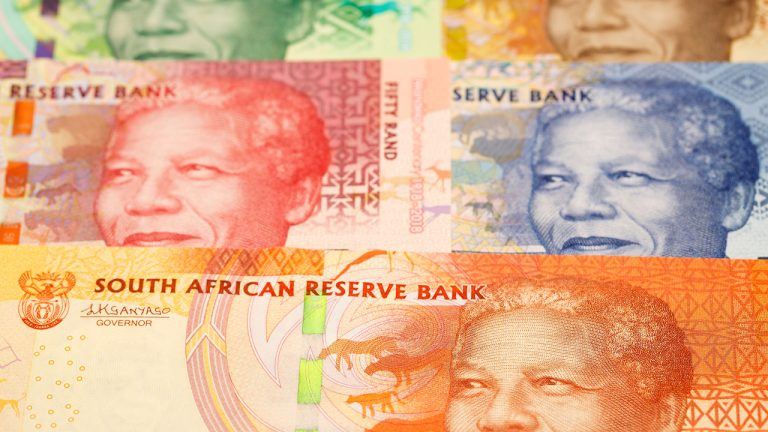
Cryptocurrency adoption by merchants is reshaping global commerce, driving financial inclusivity and enabling a borderless future.
Opinion by: Anil Öncü, CEO of Bitpace.
Over the last decade, digital payments have grown from a niche convenience to global commerce’s backbone. Instant transfers and contactless payments are now the norm, reflecting a globalized demand for speed, efficiency and accessibility.
With giants like Visa constantly pushing new solutions, digital wallets are predicted to account for more than 50% of e-commerce transactions by next year. The idea that traditional finance and cryptocurrency oppose each other is fading. Hybrid solutions that serve global financial inclusivity are primed to take root.

Huangzhou-based crypto mining chip maker Nano Labs saw its share price rise slightly after announcing it will start accepting Bitcoin as payment.
Shares in China-based crypto mining chip designer Nano Labs rose slightly after announcing it is now accepting Bitcoin as payment for its goods and services through a business account on Coinbase.
In a Nov. 11 statement, the Huangzhou-based crypto mining chip maker, which is listed on the Nasdaq, said the move was part of a “commitment to embracing the latest in financial technology” as demand increases for “digital currency transactions in the technology sector.”
Nano Labs said it was taking a “proactive stance in the evolving digital economy” as crypto “adoption continues to grow, particularly among businesses seeking efficient and secure cross-border transactions.”

South Korea’s Financial Services Commission plans to consult with other jurisdictions, including Japan and the EU, on stablecoin rules.
South Korea’s government plans to apply foreign exchange rules to cross-border transactions involving dollar-pegged stablecoins.
On Oct. 8, the country’s Ministry of Economy and Finance reportedly announced that it was reviewing measures to ensure the soundness of stablecoin transactions.
The government agency said that apart from being used to transact and exchange within the crypto ecosystem, stablecoins are also used in cross-border transactions. This means that stablecoin’s functions expand to global transfers, which may require different rules.
 Mastercard and Safaricom have partnered to improve payment acceptance and cross-border remittances in Kenya. The partnership will benefit over 636,000 merchants using M-Pesa and enable them to serve customers globally. This collaboration will provide faster and more reliable payment solutions for Kenyan businesses and their customers. Streamlining Cross-Border Transactions The multinational payment card services corporation, […]
Mastercard and Safaricom have partnered to improve payment acceptance and cross-border remittances in Kenya. The partnership will benefit over 636,000 merchants using M-Pesa and enable them to serve customers globally. This collaboration will provide faster and more reliable payment solutions for Kenyan businesses and their customers. Streamlining Cross-Border Transactions The multinational payment card services corporation, […] Russia is reportedly set to start trials for cryptocurrency exchanges and digital token payments on Sept. 1 to mitigate payment difficulties caused by international sanctions. These trials will involve the National Payment Card System and could lead to the establishment of crypto trading platforms if successful. Legislation was recently passed to legalize crypto mining and […]
Russia is reportedly set to start trials for cryptocurrency exchanges and digital token payments on Sept. 1 to mitigate payment difficulties caused by international sanctions. These trials will involve the National Payment Card System and could lead to the establishment of crypto trading platforms if successful. Legislation was recently passed to legalize crypto mining and […] Yellow Card, a leading stablecoin platform, has partnered with Fireblocks, a digital asset infrastructure provider, to improve cross-border transactions in Africa. By leveraging Fireblocks’ technology, Yellow Card aims to provide secure and efficient on-chain solutions for businesses and individuals. This includes using Fireblocks’ Wallets-as-a-Service (WaaS) to manage and protect customer assets. This partnership addresses the […]
Yellow Card, a leading stablecoin platform, has partnered with Fireblocks, a digital asset infrastructure provider, to improve cross-border transactions in Africa. By leveraging Fireblocks’ technology, Yellow Card aims to provide secure and efficient on-chain solutions for businesses and individuals. This includes using Fireblocks’ Wallets-as-a-Service (WaaS) to manage and protect customer assets. This partnership addresses the […] Neonomad, the South African hybrid exchange platform, is set to launch Zarcoin, a stablecoin tied to the South African Rand. This innovative stablecoin epitomizes the seamless integration of regulatory safety with decentralized efficiency. Neonomad’s platform will also facilitate multiple offerings, including in the decentralized finance space. Banking South Africa’s Unbanked South African fintech startup Neonomad, […]
Neonomad, the South African hybrid exchange platform, is set to launch Zarcoin, a stablecoin tied to the South African Rand. This innovative stablecoin epitomizes the seamless integration of regulatory safety with decentralized efficiency. Neonomad’s platform will also facilitate multiple offerings, including in the decentralized finance space. Banking South Africa’s Unbanked South African fintech startup Neonomad, […] Dubai’s border protection agency announced the launch of a secure and efficient blockchain network, which is expected to improve efficiency and transparency within the United Arab Emirates city. The blockchain platform will also strengthen Dubai’s position as a hub for entrepreneurship and global competitiveness. Launch Aligns with Dubai’s Government Blockchain Strategy Dubai Customs, the emirate’s […]
Dubai’s border protection agency announced the launch of a secure and efficient blockchain network, which is expected to improve efficiency and transparency within the United Arab Emirates city. The blockchain platform will also strengthen Dubai’s position as a hub for entrepreneurship and global competitiveness. Launch Aligns with Dubai’s Government Blockchain Strategy Dubai Customs, the emirate’s […]

The HKMA set up Project Ensemble months ago. Now we know why.
The Banque de France (BDF) and the Hong Kong Monetary Authority (HKMA) have signed a Memorandum of Understanding (MoU) on bilateral collaboration on wholesale central bank digital currency (CBDC) and tokenization. This work is in addition to the numerous larger projects the countries participate in together.
The HKMA and BDF will explore interoperability between their CBDC infrastructures and cross-border transaction settlement efficiency, the HKMA said in a statement. The BDF has infrastructure, called DL3S, in place for the introduction of a CBDC. The HKMA will use the Project Ensemble sandbox for their research.
Related: Issuing digital euro, or ‘Cash+,’ is probably a duty, French central banker says

Navin Gupta, managing director of South Asia, Middle East and North Africa (MENA) at Ripple, told Cointelegraph that education and introducing non-speculative use cases can help crypto companies navigate through varying regulations.
A Ripple executive has re-emphasized the need to adopt a technology-neutral approach for more effective and adaptable guardrails as global regulators grapple with cryptocurrency rules.
At the recent Ripple Swell 2023 event, Navin Gupta, managing director of South Asia, Middle East and North Africa (MENA) at Ripple, told Cointelegraph that the industry should be regulated based on activity rather than the technology used. He said:
“We don’t want people to think about regulating the technology… We want regulators, or anybody for that matter, to be technology-neutral. It doesn’t matter if the [activity] is happening in blockchain or traditionally.”
“[If] somebody is going payments, then it needs to be regulated as a payment instrument. If something is a security, it needs to be regulated as a security instrument,” he added.
Intention turns into action, and action turns into building, collaboration and partnerships. @Navinblockchain shares how #RippleSwell in Dubai brings people together to drive crypto innovation. pic.twitter.com/qS7AiWMJMV
— Ripple (@Ripple) November 9, 2023
For Gupta, the focus should be on the purpose and use of the virtual asset rather than the underlying technology to create flexible regulations, ensuring that they remain relevant as blockchain technology evolves.
Related: Brad Garlinghouse jabs at maximalists: ‘It will be a multichain world’
The unique characteristics and global portability of cryptocurrencies — with their different token types — have proved challenging for regulators. In response, the Group of Twenty last month unanimously accepted a crypto regulatory roadmap proposed by the International Monetary Fund and the Financial Stability Board in September that advocates for comprehensive oversight of crypto globally.
But while the MENA region has jurisdictions such as the United Arab Emirates that have taken an open stance toward the new asset class, some nations, including the Arab superpower Saudi Arabia, have yet to introduce clear rules, with some, like Egypt and Morocco, completely banning Bitcoin (BTC) and other cryptocurrencies altogether.
According to Gupta, besides educating and working with regulators to help them better understand the industry, introducing non-speculative crypto use cases, such as crypto remittances and payments, is key to navigating the region’s varying legal landscapes.
“Whenever you talk about non-speculative use cases and how crypto can play a part, regulators are all ears because there you’re not going to say that people are speculating to double their money. [You’re] going to say, ‘How can we make it easier for citizens to get a better benefit that they’re not getting today.’”
“Education and utility-based projects where there is real utility for usage is how we can get regulators onboard,” he added.
Given the large remittances market in Africa, Ripple announced a partnership with mobile payments provider Onafriq in November that will open new payment corridors between 27 African countries and Australia, the United Kingdom and the Gulf Cooperation Council.
Magazine: China’s surprise NFT move, Hong Kong’s $15M Bitcoin fund: Asia Express